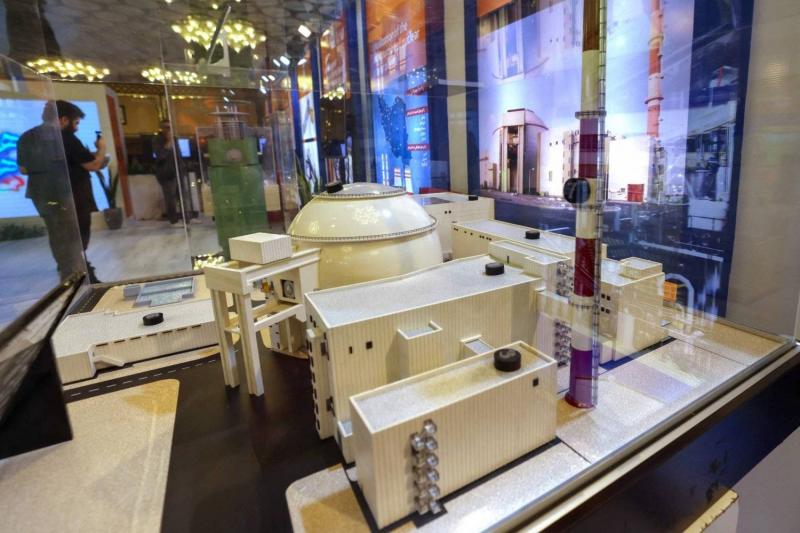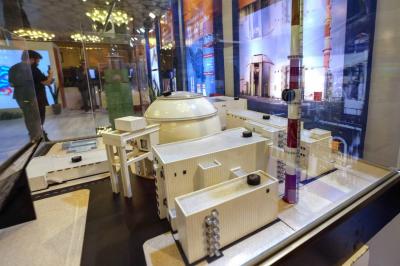The International Atomic Energy Agency (IAEA) has not confirmed the peaceful nature of Iran's nuclear ambitions, yet many experts and officials in the West believe that the current level of uranium enrichment lacks any peaceful justification, at least.
In the past two months, following Iran's drone and missile attacks on Israel and the attack on nuclear facilities near Isfahan, which was attributed to Israel, numerous allegations about Iran's nuclear capabilities have surfaced more broadly. Following remarks by Kamal Kharrazi, head of the Strategic Council on Foreign Relations, in an interview with Qatar's Al Jazeera that gained significant media attention, Abbas Araqchi, the Secretary of this council and former head of nuclear negotiations, seized on the international community's sensitivity regarding Iran's possession of nuclear weapons and reiterated positions similar to those of Kharrazi. Kharrazi stated on May 9 that "Iran may change its doctrine on possessing nuclear weapons if it is threatened." He also spoke of Israeli threats. Araqchi echoed this sentiment last Sunday during a panel discussion held by Al Jazeera in the Qatari capital, Doha, stating that "Israeli nuclear threats will compel countries to change their nuclear doctrines."
The Iranian officials' claims that Tehran might alter its nuclear doctrine come while promoting the Iranian nuclear project, which has been justified as peaceful rather than military, raising doubts about these assertions, particularly since the Iranian nuclear program, which attracted global attention 22 years ago, was revealed by Iranian opposition rather than official government announcements, and remains shrouded in uncertainty with questions that have not been answered to this day. During this period, no official or international organization, including the IAEA, has confirmed the peaceful nature of Iranian nuclear activities, as previous reports, especially documents taken from the Iranian nuclear archive, indicated that the program had a military orientation at least until 2002.
Since then, the IAEA and the West have reportedly engaged in a struggle with Iran regarding cooperation to verify Tehran's claims about peaceful nuclear objectives, but the parties have not yet reached a clear conclusion. Naturally, while the IAEA has not confirmed the peaceful nature of Iran's nuclear ambitions, it has also yet to establish that the Iranian nuclear program is military. However, many experts and officials in the European Union and the United States believe that the current level of uranium enrichment using advanced centrifuges and the accumulation of uranium stockpiles in Iran has no peaceful justification at all.
IAEA Director General Rafael Grossi has stated on multiple occasions that "there are still many doubts about the Iranian nuclear program, and if there is not complete cooperation to reach tangible results, we cannot be sure of the peaceful nature of the Iranian nuclear program." A significant point of contention between the IAEA and Tehran is the uranium particles found in at least three undisclosed locations in Iran, namely the Varamin, Mariwan, and Torqozabad facilities.
On the other hand, Tehran often characterizes the statements from the IAEA, Europe, and the United States, which share concerns regarding Iranian nuclear activities, as political statements. Notably, to substantiate their claims that Iranian nuclear activities are peaceful, Iranian officials have invoked a fatwa from Supreme Leader Ali Khamenei. In the midst of UN Security Council sanctions against Iran, Khamenei prohibited the use of nuclear weapons and other weapons of mass destruction on December 12, 2010. The fatwa stated, "We believe that in addition to nuclear weapons, other kinds of weapons of mass destruction, such as chemical and biological weapons, pose a serious threat to humanity. We consider the use of these weapons forbidden, and it is the duty of everyone to protect humanity from this great calamity."
It is worth noting that several major American media outlets and a number of analysts and experts have referenced Khamenei's fatwa in their discussions of Iranian nuclear activities. However, Khamenei's appointees, Kharrazi and Araqchi, through their threats, suggest that there is a possibility of changing the nature of Khamenei's fatwa or opposing it if necessary.
On the other hand, the claim of "changing nuclear doctrine" while the nature of Iranian nuclear activities remains in doubt may be intended to provoke the West to resume negotiations or could indeed be a direct threat; nonetheless, this does not imply acceptance of the regime's assertions that the nature of its nuclear doctrine has been peaceful until now.




